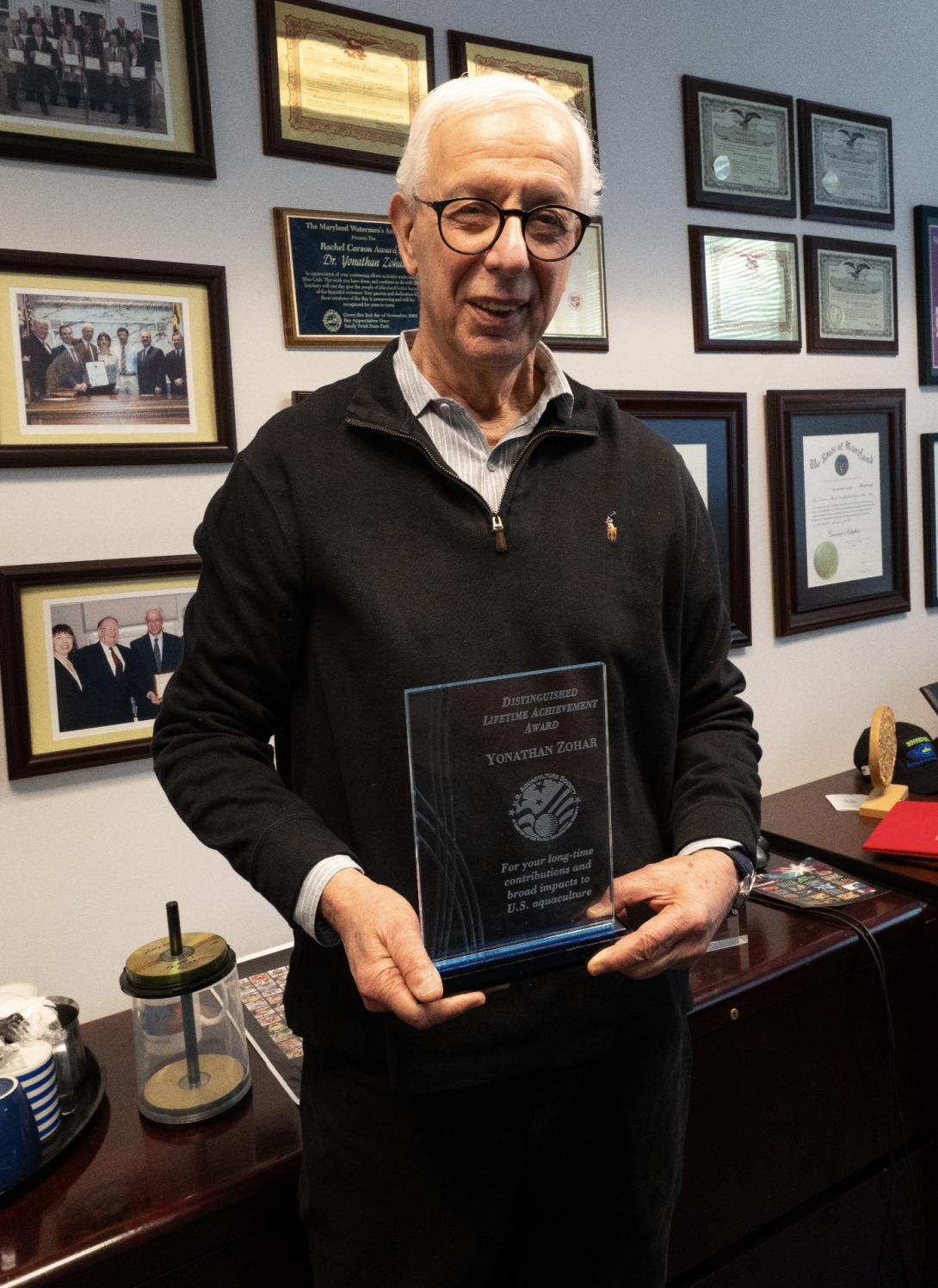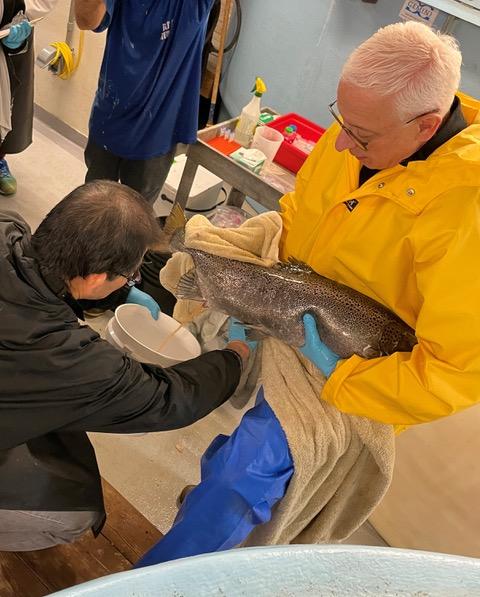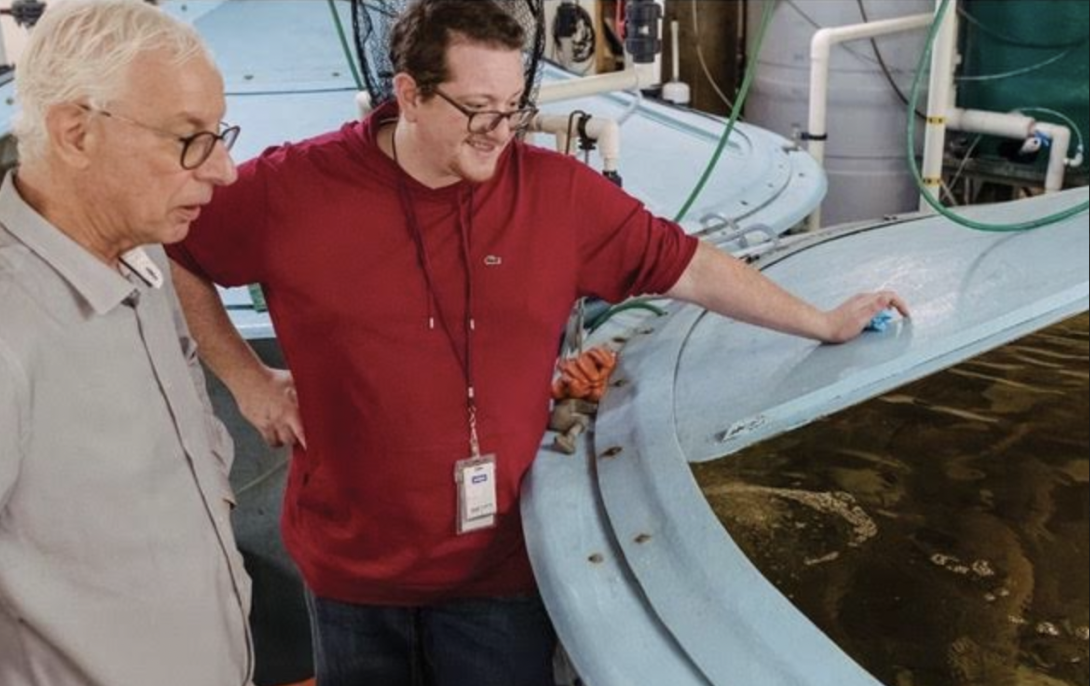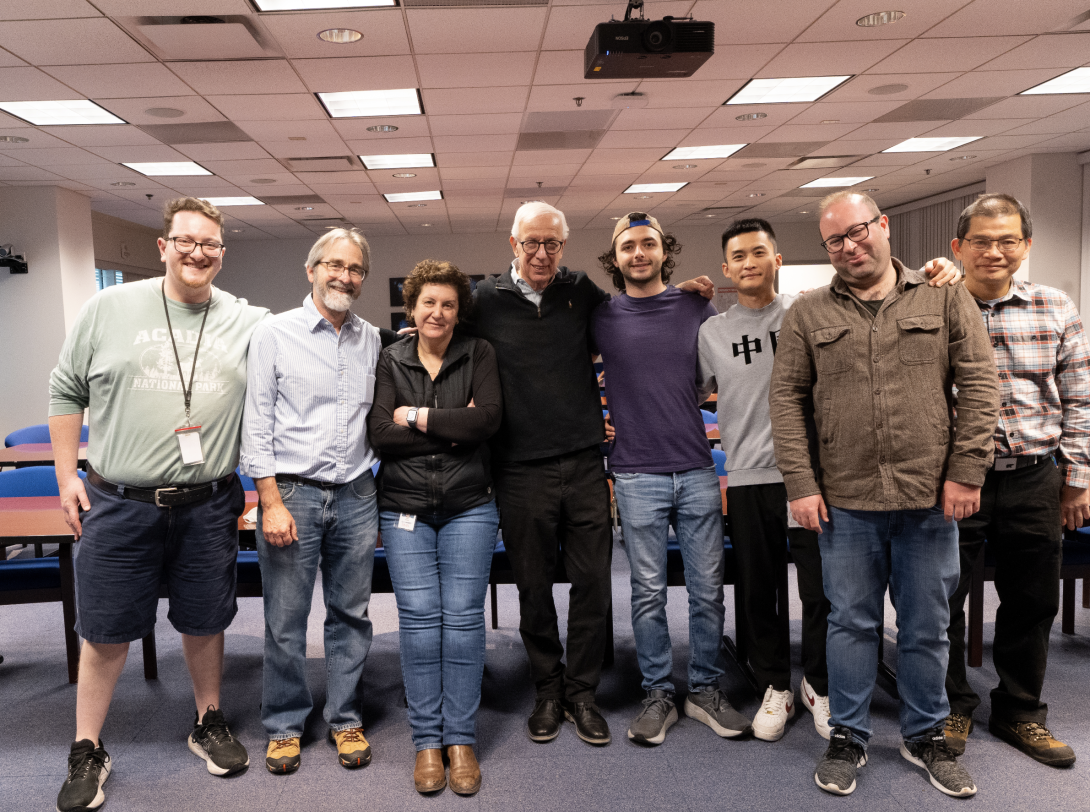Yonathan Zohar: A Lifetime of Achievements in Sustainable Aquaculture

Yonathan Zohar is a towering figure in the world of aquaculture and marine biotechnology whose contributions have significantly shaped the field over the past four decades. His pioneering research in fish reproductive biology and broodstock management has led to sustainable practices that have reverberated globally.
In recognition of his achievements, Zohar recently received the 2025 Distinguished Lifetime Achievement Award from the United States Aquaculture Society for his “longtime contributions and broad impacts to U.S. aquaculture.”

Revolutionary Contributions and Global Impact
“Dr. Zohar is recognized globally for his pioneering research in endocrine technologies, which he has translated into commercial applications for high value marine fish, selective breeding programs, threatened and endangered species, and countless other applications,” Dr. Abigail Bockus, president of the US Aquaculture Society, said at the award ceremony.
Zohar’s work has fundamentally transformed aquaculture by addressing one of its most critical challenges: the failure of many farmed fish to reproduce in captivity. In his career, he made the breakthrough discovery that a key brain hormone, gonadotropin-releasing hormone (GnRH), malfunctions in captivity, which is why many fish fail to spawn in aquaculture setups. He then synthesized super-active analogues of GnRH and incorporated them into biodegradable implants that very efficiently induce captive spawning and egg production in scores of farmed fish, therefore enabling their hatchery-based aquaculture. “Dr. Zohar’s work has allowed us to control reproduction and close the life cycle of numerous commercial, environmental, and model species,” Dr. Bockus said.
The scope of Zohar’s influence extends to spearheading major federal and industry-funded research initiatives and leading transformative projects, such as the $10 million grant project from the USDA’s Sustainable Agriculture Systems program to expand the Atlantic salmon industry in the United States. His efforts in these areas are estimated to have a staggering economic impact of $12 billion, showcasing the profound and lasting implications of his work on both national and global scales.
A Mentor Transforming Lives
Beyond his scientific achievements, Dr. Zohar's role as a mentor is equally impactful, nurturing the careers of many aspiring scientists and engineers. A poignant example of his influence is seen in the story of one of his Ph.D. students, Matthew Stromberg, who credits Dr. Zohar for his career shift from a restaurant manager to an environmental engineer. Stromberg's journey began with a video of Dr. Zohar discussing aquaculture, which instantly resonated with him, redirecting his life's work towards environmental and aquacultural engineering.
Stromberg's testimonial underlines the personal impact of Dr. Zohar's mentorship:

"I absolutely would not be here if not for Dr. Zohar. It was a crystallizing moment for me... What better thing to study than a way to feed the people of the world and take pressure off of wild ecosystems."
Under Dr. Zohar's guidance, Stromberg pursued his studies with renewed purpose and eventually visited IMET, where Dr. Zohar spent considerable time introducing him to various research projects and aligning their mutual goals of sustainable aquaculture and conservation. This mentorship culminated in opportunities for Stromberg to engage with global conferences and impactful research, a testament to Dr. Zohar's commitment to developing the next generation of scientists.

Legacy and Future Directions
As Dr. Yonathan Zohar continues to advance the field of aquaculture, his dual legacy of groundbreaking scientific contributions and dedicated mentorship solidifies his standing as a luminary in sustainable science. His work not only addresses immediate industrial needs but also equips future scientists like Matthew Stromberg (and others shown in this photo) with the tools to continue this vital work. Zohar's enduring contributions to scientific innovation and student education exemplify the highest ideals of academia, industry and humanity, making his receipt of the Distinguished Lifetime Achievement Award a fitting tribute to his vast contributions.